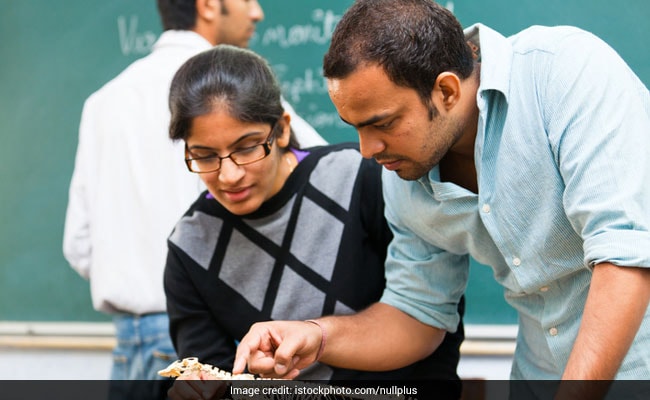A school without textbooks
We need to nurture skills, encourage children to engage with environment
Written by Anju Kawr Chazot
|
Published:June 30, 2017 12:24 am
When in 1999 we started a school without prescribed textbooks, the reactions ranged from mild surprise and amusement to anxiety, even shock and indignation. A school without textbooks? How would children learn? Yet, after 18 years, our data shows that these children are faring as well, and in many cases even better, than their counterparts who studied in schools with prescribed textbooks. From kindergarten to Class 10, children at the Mahatma Gandhi International School (a PPP with the Ahmedabad Municipal Corporation) learnt through real life projects that they voted for or proposed and then prepared for their exams in grades 11 and 12.
Traditionally in ancient India, learning was imparted by the “guru” and mostly to children of higher castes. The guru’s position in Indian society was due to his spiritual and moral qualities as much as his knowledge of texts that were imparted in an oral tradition. Till the British rule, village schools ran under headmasters who decided on the curriculum based on the local context and resources. Though there was an erosion in the hallowed status from the guru to the headmaster, the latter continued to enjoy epistemic power and authority. However, colonial rule took away the independent status of the teacher by centralising education with stringent bureaucratic norms. This meant prescribed curriculum and textbooks with centralised examinations along with government control over teacher appointments, promotions, and school budgets. Poor pay scales and lack of autonomy further eroded the teacher’s professional status.
Furthermore, the teacher was no longer the sole provider of information. The textbook became the new source of information and the teacher derived his or her power in the manner of use of the textbook. This led to what Krishna Kumar, erstwhile director of the National Council for Education Research and Training calls the “textbook culture”. A curriculum and a prescribed textbook are always political playgrounds for competing ideologies. What goes into a textbook as well as what is kept out, is decided by a bunch of people sitting somewhere away (both geographically and metaphorically) from our children.
It takes a long time for new discoveries to make their way into textbooks. Sometimes, longer than 500 years. For example, the current map of the world we study in our textbooks is called the Mercator map and was made by Flemish cartographer Gerardus Mercator in 1569. A new projection called the Galls-Peter map made in 1974 shows how distorted the Mercator map is: Actually, Africa, South America and India are larger, Greenland and Antarctica diminished and Europe and North America much smaller. There is a debate about the “imperialist” bias and the “Eurocentric” vision that diminished the physical size of the colonised world. Now that we have the technology, should not the map have changed in the textbooks?
Educational researchers in India have long argued for a curriculum that takes the local context of the child into consideration. In one textbook for English as a second language, in an area where poor tribal children trek from forest areas and come mainly for the mid-day meal, often barefooted, I was shocked to see that the teacher was supposed to teach a Robert Frost poem as part of the secondary school course. No doubt some luminary had a romanticised idea of teaching English language through literature to a group of children who could not even respond to “what is your name” after two years of studying the language. Can we really blame the teacher in such a situation?
There is obviously the argument that all teachers may not have the wherewithal to create a curriculum. In that case, textbooks created by local stakeholders together with researchers and innovative educationalists can serve as a guide but not as a prescriptive truth. What should be developed and nurtured are skills and processes through a wider consultation of a variety of sources from books and internet to people. Instead, we have ritualised procedures in terms of definitions and formulae learnt by rote from textbooks and regurgitated in a onetime exam. Little wonder that a NASSCOM report states that only 15 per cent of the graduates in India are employable.
The National Curriculum Framework (NCF, 2005) and the Right to Education (2009) have brought welcome reforms in terms of active learning, connections with local contexts and real life and learner centric pedagogies. The NCF provides a framework for greater freedom for the teacher. But there continues to be a gap between the policy and its implementation.
With new technologies, the textbook cannot be the sole source of information. The internet has democratised knowledge making new skills of critical thinking and synthesis more relevant than just factual information. A curriculum based on concepts is more universal. As the psychologist Jerome Bruner argues, it is no longer problem solving but problem finding that is the key to a relevant education. This is possible when children are engaged in experiential learning through interaction with their environment. The nature of reality is complex and multi-layered. It cannot be be doled out in standardised formats. It can only be grasped and understood by one’s own processes and in relation to one’s own context.
Source: http://indianexpress.com/article/opinion/columns/a-school-without-textbooks-children-colonial-rule-ancient-india-education-4728285/

